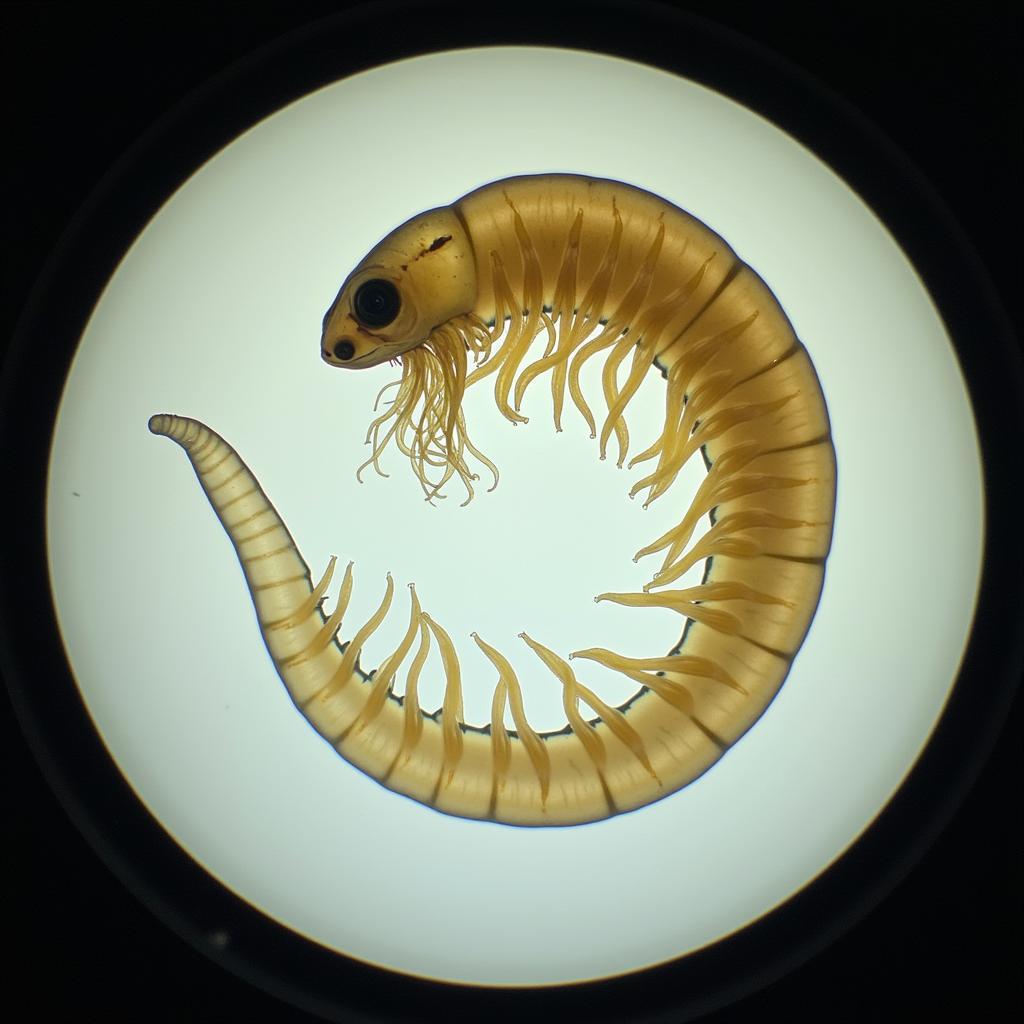Vermiculus in horses, also known as threadworms, are a common type of intestinal parasite that can affect equines of all ages and breeds. These thin, white worms, scientifically classified as Strongyloides westeri, reside in the small intestine and can cause a range of health issues, particularly in foals and young horses.
 Microscopic view of Strongyloides westeri, the threadworm commonly found in horses.
Microscopic view of Strongyloides westeri, the threadworm commonly found in horses.
While adult horses often develop a natural resistance to vermiculus, infections can still occur and impact their well-being. Understanding the life cycle of these parasites, recognizing the signs of infection, and implementing effective prevention and treatment strategies are crucial for ensuring the health and performance of your equine companion.
The Life Cycle of Vermiculus in Horses
The life cycle of Strongyloides westeri is unique in that it can be completed entirely within the horse’s digestive system. Infected mares shed eggs in their manure, which hatch into larvae in the environment. These larvae can then be ingested by horses grazing contaminated pastures.
 A horse grazing on a lush green pasture, highlighting the potential risk of ingesting vermiculus larvae present in the environment.
A horse grazing on a lush green pasture, highlighting the potential risk of ingesting vermiculus larvae present in the environment.
Once ingested, the larvae penetrate the wall of the small intestine, where they mature into adults and reproduce. Female worms lay eggs that are passed in the feces, perpetuating the cycle. Importantly, vermiculus larvae can also penetrate the skin, potentially infecting foals through their dam’s milk or by contact with contaminated bedding.
Recognizing the Signs of Vermiculus Infection
In adult horses, vermiculus infections are often asymptomatic, meaning they show no outward signs. However, heavy infestations can lead to diarrhea, weight loss, and poor coat condition. Foals, on the other hand, are more susceptible to severe infections due to their developing immune systems.
Symptoms of vermiculus in foals can include:
- Profuse, watery diarrhea
- Dehydration
- Lethargy and weakness
- Failure to thrive
- Pot-bellied appearance
 A veterinarian conducting a thorough physical examination on a young foal, emphasizing the importance of regular veterinary care in detecting and managing vermiculus infections.
A veterinarian conducting a thorough physical examination on a young foal, emphasizing the importance of regular veterinary care in detecting and managing vermiculus infections.
If you observe any of these signs in your horse, especially foals, it’s crucial to contact your veterinarian immediately. Early diagnosis and treatment are essential for preventing complications and ensuring a positive outcome.
Preventing Vermiculus in Horses
Preventing vermiculus infections requires a multi-faceted approach that focuses on reducing exposure to the parasite and maintaining a healthy immune system:
1. Pasture Management:
- Regularly remove manure from pastures to minimize larval contamination.
- Rotate pastures every 2-3 weeks to break the parasite life cycle.
- Avoid overcrowding, as higher stocking densities increase the risk of infection.
2. Hygiene and Sanitation:
- Keep stables clean and dry, paying particular attention to bedding areas.
- Provide fresh, clean water daily.
- Wash your hands thoroughly after handling horses or manure.
3. Targeted Deworming:
- Consult your veterinarian to develop an appropriate deworming program tailored to your horse’s age, health status, and risk factors.
- Fecal egg count tests can help determine the need for deworming and the effectiveness of chosen products.
4. Nutritional Support:
- Provide a balanced diet rich in nutrients to support a strong immune system.
- Consider adding probiotics to your horse’s feed to promote gut health.
Treatment of Vermiculus in Horses
Treatment for vermiculus infections typically involves anthelmintic medications, commonly known as dewormers. These medications work by killing or paralyzing the worms, allowing them to be expelled from the body through the feces. Your veterinarian will determine the appropriate dewormer and dosage based on your horse’s specific needs.
Following treatment, it’s important to:
- Monitor your horse for improvement and any potential side effects.
- Dispose of manure properly to prevent re-infection.
- Continue with your veterinarian’s recommended deworming schedule.
Conclusion
Vermiculus in horses is a common parasitic infection that can have significant health implications, particularly for young foals. By understanding the parasite’s life cycle, recognizing the signs of infection, and implementing effective prevention and treatment strategies, you can play a vital role in safeguarding the well-being of your equine companion. Regular veterinary care, along with proactive management practices, is key to maintaining a healthy and parasite-free environment for your horses.